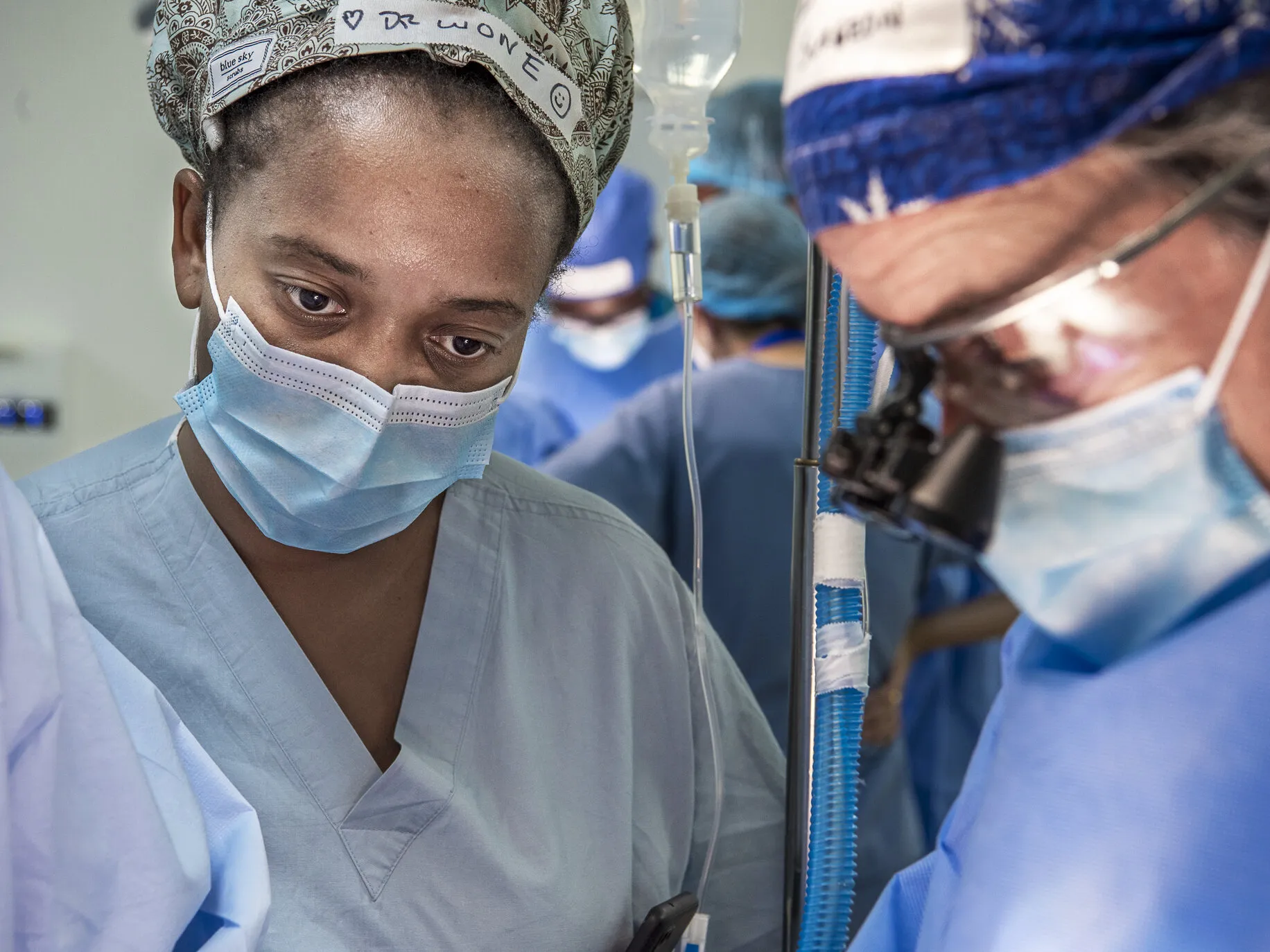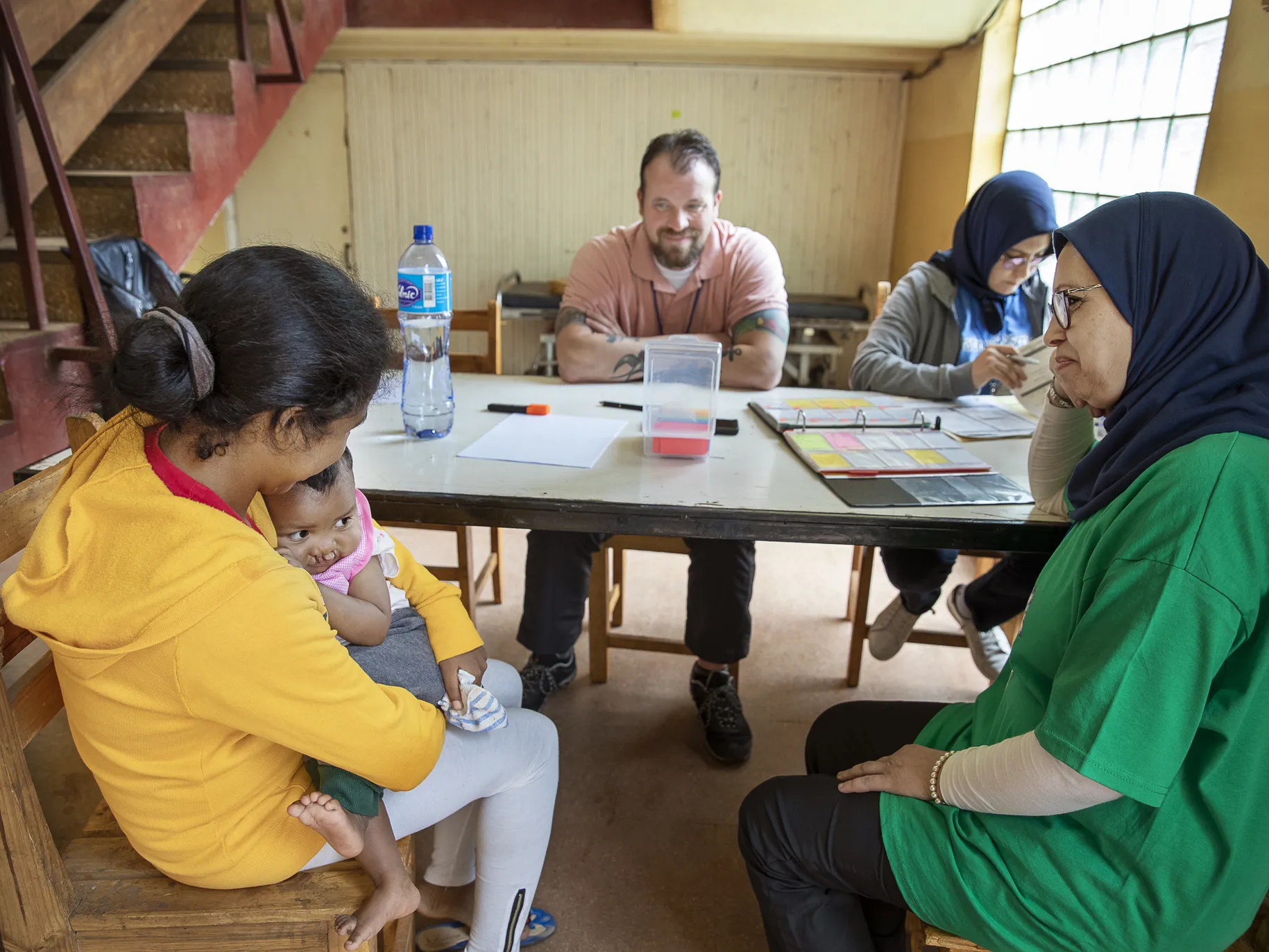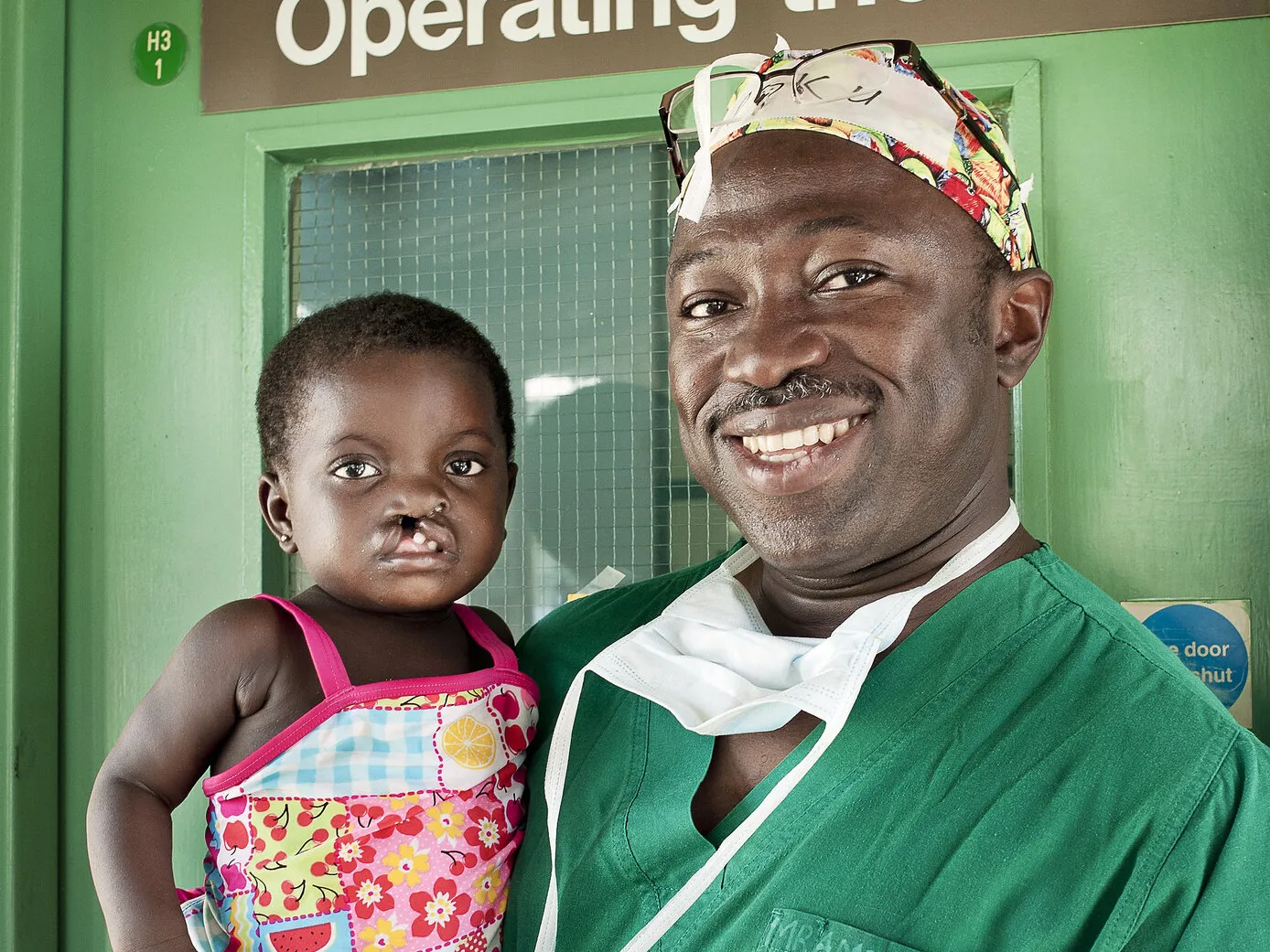Care Providers
In Malawi, Volunteers Support Families
Operation Smile has made smiles brighter in Malawi for four years, by providing free cleft lip and cleft palate surgeries to hundreds of patients in need. But this year, the medical and non-medical team helped bring smiles to families through more than surgery alone.
During the surgical program in Malawi last month, parents and guardians left not only with a healed child, but with newly acquired skills in a trade they can use to make money.
Poverty in Malawi is prevalent and it is very hard to break free from its cycle. Beyond having a child with a cleft lip or cleft palate, not having skills or resources often leads people to lose confidence in their ability to provide basic needs for their family. Operation Smile’s surgical program in Malawi was to not only support patients physically this year, but to also support their families mentally and emotionally.
Once patients are selected for surgery, they wait with their families in a nearby patient shelter where they stay throughout the week. In many cases, patients travel for hours by foot, bus and other means to get to the surgical program site. With a patient shelter in place, families need not to worry about basic needs this week. Their food, water and shelter is provided.
Every morning at the patients shelter, parents and guardians had an opportunity to discover some new skills they may not have had before.
Early one morning, two volunteers arrived at the shelter very eager to meet the group of people to whom they would be teaching what could be a valuable skill: crocheting plastic bags. Plastic bags are a major environmental issue in Malawi. This is a resource that is prominent everywhere, and it is a resource that is free. A free resource can be very beneficial to a person lacking finances, especially if they are taught creative ways to use this resource.
Dozens of parents and guardians gathered in the patient shelter to learn how to clean, cut, and crochet plastic bags found on the street. By the end of the two days, all men and women in attendance had collectively created plastic mats, shoulder bags, hats, and decorative flowers.
Volunteers brought needles, thread, plastic bags, chitenje material, buttons, towels and scissors. As men and women filed into the auditorium one particular morning, they found each desk awaiting them with resources found locally in their villages.
On the last day, parents got to take some of the materials home so they could teach friends and family back in their home villages. When asked about how they could use this skill back home, one women smiled with excitement and said: “I am going to teach the girls at the local secondary school.”
“I can make these and sell them in my village!” another parent said. Enthusiasm and innovation were among the sentiments shared by the women, and the volunteers were recipients of some of the most thankful smiles possible.
One of the best things about this week was seeing all of these people from all over Malawi working together as a team to create something new from something presumed no longer useful. Their joy and pride in what they had created was visible through their smiles to all Operation Smile volunteers.
Volunteers felt inspired by the families at the shelter, as well. Their smiles evolved into laughter when playing malaria awareness games with mothers and children. They smiled when we were asked questions about what Malawians could do to keep their loved ones healthy. They smiled when Malawians were thankful for the chance to build multiple sanitary hand-washing stations at the shelter to keep the population healthy.
It has been a couple weeks since the Operation Smile surgical program in Malawi ended. All the volunteers have left Malawi, and all patients have returned to their homes.
There is now a woman in Malawi who is out collecting plastic bags she plans on crocheting and selling so she doesn’t need to depend solely on her husband for financial support.
There is now a child who is playing soccer and telling the other children what he learned about malaria to keep them safe, too.
There is now a man who has built a sanitary hand washing station for his home so he can prevent his family from getting sick.
There is now a person reading about this program in a far away place, and smiling at the idea that they helped to create a larger positive impact on Malawi than they could have ever dreamed.











